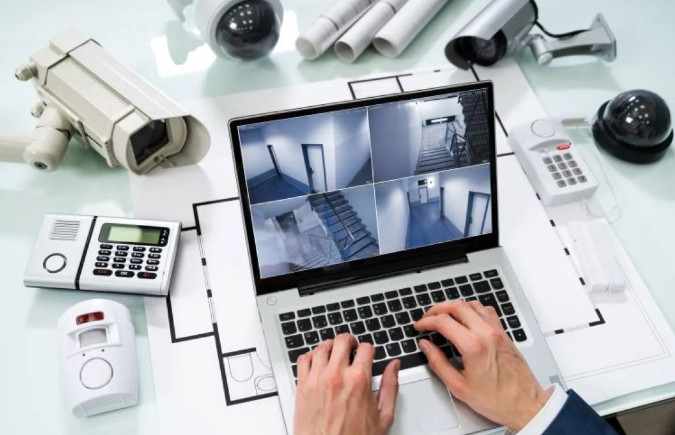
How to Buy the Best Security System for Your Needs
When it comes to ensuring the safety of your home and loved ones, investing in a security system is one of the best decisions you can make. With so many options available, figuring out how to buy the best security system can be a daunting task. This guide will walk you through the essential factors to consider, helping you make an informed choice that meets your specific needs.
First, assess your security needs. Start by evaluating your home and lifestyle. Consider factors like the size of your property, the number of entry points, and whether you live in a high-crime area. Identify what you want to protect: is it just your home, or do you also want to secure valuables like cars or expensive electronics? Understanding your unique requirements will guide you in selecting the right system.
Next, familiarize yourself with the different types of security systems available. There are three main categories: wired systems, wireless systems, and monitored systems. Wired systems are hardwired into your home, making them less prone to tampering but potentially more complicated to install. Wireless systems, on the other hand, are easier to install and can be set up in a matter of hours. Monitored systems offer professional monitoring services, which means someone will always be watching your home, even when you are not.
Consider the features that each system offers. Essential features often include door and window sensors, motion detectors, security cameras, and alarms. Some systems come with additional perks, such as smart home integration, remote access via smartphone apps, and two-way audio. These advanced features can enhance your security and provide you with peace of mind. When looking at different options, make a list of must-have features and nice-to-have features to help narrow down your choices.
Budget is another critical factor in your decision-making process. Security systems come at various price points, so it’s essential to determine how much you are willing to spend. Keep in mind that the initial setup cost is just one part of the equation; consider additional expenses such as monthly monitoring fees, installation costs, and equipment upgrades. Look for security systems that offer flexible pricing plans or financing options, making it easier for you to stay within your budget while still getting quality protection.
Research reputable security companies. Once you have a list of potential systems, take time to read reviews and testimonials from other customers. Look for companies with a strong reputation for customer service and reliability. Websites like Consumer Reports, Better Business Bureau, and Trustpilot can provide valuable insight into the company’s performance. Don’t hesitate to ask friends and family for recommendations based on their experiences.
In addition to customer reviews, investigate the warranty and customer support offered by the security system provider. A good warranty can protect your investment, while responsive customer support can help you resolve any issues quickly. Check if the company provides online resources, such as installation guides and troubleshooting tips, to assist you in managing your system.
Installation is another important consideration. Some systems require professional installation, while others are DIY-friendly. If you choose a wired system, hiring a professional is often the best option to ensure everything is set up correctly. For wireless systems, many brands offer user-friendly instructions that make self-installation easy. If you go the DIY route, make sure you follow the installation guide carefully to avoid any security flaws.
Think about smart home integration. Many modern security systems can seamlessly integrate with smart home devices, allowing you to control everything from your lights to your thermostat. This level of integration not only enhances your security but also allows for greater convenience. If you're already using smart devices, look for a security system that can connect with them for a fully automated home experience.
When exploring options, consider the monitoring services offered. You can choose between self-monitoring and professional monitoring. Self-monitoring allows you to receive alerts and check your security status through a mobile app. However, you will be responsible for responding to alerts. Professional monitoring, on the other hand, means that trained personnel will monitor your home 24/7 and alert authorities if necessary. Depending on your lifestyle and comfort level, determine which option is best for you.
Don’t forget to evaluate the scalability of the security system. Your needs may change over time, especially if you move to a new home or expand your family. Choose a system that allows you to add new devices or features easily. This flexibility can save you money in the long run and ensure that you always have the best protection available.
Finally, take the time to compare multiple quotes before making your final decision. Contact different security companies to get estimates based on your specific needs and preferences. Look for any promotions or discounts that may be available. Comparing quotes will give you a clearer idea of the market rates and help you find the best deal without compromising on quality.
In conclusion, knowing how to buy the best security system involves assessing your needs, understanding the types of systems available, and considering essential features and budget constraints. Researching reputable companies and understanding installation options will further guide you in making an informed decision. By following these steps, you can find a security system that offers peace of mind, knowing that your home and loved ones are well-protected. Investing in a quality security system is a proactive measure that can keep you safe and secure for years to come.